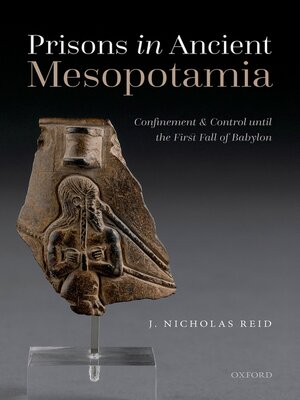Prisons in Ancient Mesopotamia
ebook ∣ Confinement and Control until the First Fall of Babylon
By J. Nicholas Reid

Sign up to save your library
With an OverDrive account, you can save your favorite libraries for at-a-glance information about availability. Find out more about OverDrive accounts.
Find this title in Libby, the library reading app by OverDrive.



Search for a digital library with this title
Title found at these libraries:
| Loading... |
Prisons in Ancient Mesopotamia explores the earliest historical evidence related to imprisonment in the history of the world. While many historical investigations into prisons have revolved around the important question of punishment, this work moves beyond that more narrow approach to consider the multifunctional practices of detaining the body in ancient Iraq. It is the contention of this book that imprisonment arose out of the desire to control and detain
the body in relation to labor. The practice of detainment for coercion became adaptable to a variety of circumstances and goals, which shaped the contexts and practices of imprisonment. With time, religious ideology was attached to imprisonment. In one literary text, a prisoner was refined like silver and
given new birth in the prison. The misery of imprisonment gave rise to lament through which a criminal could be ritually purified and restored to a right relationship with their personal god. Beyond this literary perspective, this work reconstructs how imprisonment and religious ideology intersected with the judicial process and explores the evidence related to the reasons behind imprisonment, the treatment of prisoners, and the evidence related to the lengths of their stays.






